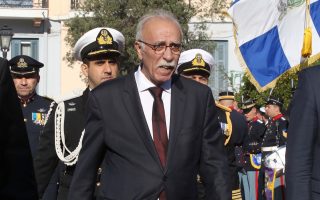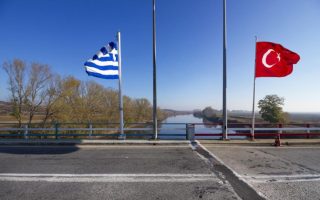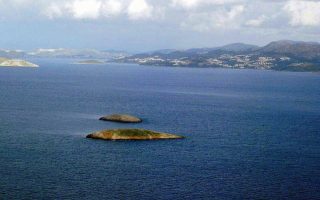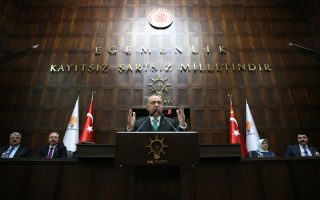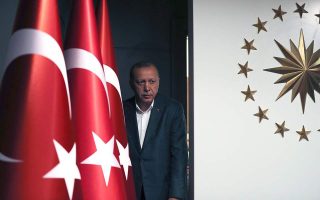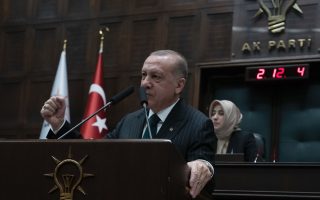Fear and loathing in the ‘new’ Turkey
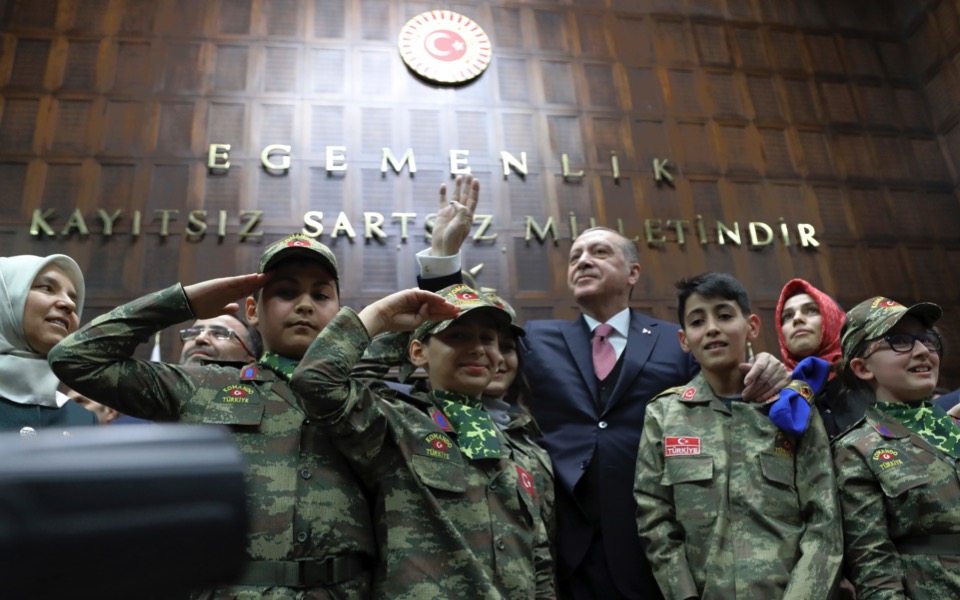
My taxi drives up to the entrance of the city campus near Ankara’s center. When I first came here, around 30 years ago, the guards patrolled the area with machine guns: The university was still in the throes of the post-1980 military coup. The guns were put away long ago, but I am still asked to report to security with an identity document; thankfully my name appears on the list and I am shown through.
My colleague greets me warmly and we go for lunch (fresh and delicious, even in the university canteen). I am aware of the restrictions in the Turkish media and have been struck, in the very few days I am in Turkey, by the nationalist fervor gripping the country over its military intervention in Afrin, northern Syria (the clash with Greece also fans the nationalist flames, albeit only for a day or two). My friend, however, is an expert on Syria of international renown, and I am always hopeful, so I ask if he is at least able, while steering clear of critique of government policy, to publish analyses of the situation on the ground. He assures me it is too risky because, nowadays, if you are not for the government you are against it – and I believe him. He has a vibrant and fearless personality and, contrary to many others, is not prone to exaggeration. He adds an apocryphal story: Nowadays, if you appear on television to comment sympathetically on government policy, you are likely receive a phone call from the Foreign Ministry, thanking you.
Another colleague comes over to lunch: We discuss her situation. She is on trial for conspiracy to overthrow the constitutional order in the attempted coup of July 2016; the evidence against her consists of her newspaper articles published in a Gulenist paper some years before the event. She is supposed to have aided the attempted coup through a “manipulation of opinion” (algi operasyonu), currently one of the ruling AKP’s favorite concepts. The university has managed to keep her on and she is still teaching but prefers, of course, to remain under the radar.
I am also introduced to another colleague whose wife, I am told, is unemployed because her university was closed down for being associated with the Gulen movement.
We talk shop. They describe – and, as usual, I am exerting myself to understand, because it is not easy – the bureaucratic intricacies which entangle the university with the Higher Education Council (Yuksek Ogretim Kurulu, YOK). This body was established by the 1980 military regime to centralize the system of higher education, rendering YOK approval necessary for a range of internal university decisions. It is still a convenient structure with which to control recalcitrant academics even if, nowadays, it is staffed by appointees of the current government. University rectors are also appointed by the president of the republic from a list which may be voted on by academic staff internally but is increasingly bypassed.
My lecture goes well: My topic is quite historical and everyone seems grateful to be engaging in an academic discussion – a distant memory of what they are supposed to be doing under normal circumstances, when not being preoccupied about the current situation.
I leave, the next day, for a planned visit to Eskisehir. My departure is from the central train station in the north of Ankara. I thought I had become used to this but I am stunned, once again: The gleaming station would put to shame many in the United Kingdom, where I live. (I was reminded by a friend that there was a suicide bomb just outside it in October 2015 with over a hundred dead but I see no commemoration of it and I put it out of my mind. Security is extremely tight going into the station, which is reassuring.) The “hizli tren” (quick train) which takes me to Eskisehir in one hour and 35 minutes is immaculate even though the Wi-Fi is weak. I think I have “placed” the woman sitting next to me on the country’s sociological map – she is in her 70s, no makeup, and wears a traditionally patterned headscarf – but I am a bit thrown when she takes the iPhone out of her bag.
I am greeted by another university colleague in Eskisehir. I do not know her well but soon hear a familiar story: Her family is Kurdish but moved from the southeast to the west of the country before she was born, so that her father could join the civil service. My friend was recently appointed to one of the universities in this vibrant youthful city and is happy there; but is also worried about her situation. Rumors abound, and she has been called into the rector’s office to explain her frequent visits abroad. She tries to explain that her job involves attending international conferences. She tells me that she tries to broach issues of identity and difference with her students, but only gently. One hears that students may “report” on their teachers; it may not be true but it is safer to keep silent. She does not advertise her Kurdish origins too much.
Eskisehir may be better than many other places but recent academic surveys have shown that polarization is deep in Turkey. Suspicion and intolerance divides both Turks and Kurds and the opponents of the AKP government and President Recep Tayyip Erdogan from their supporters (though, crucially, not all of the latter). Political division has seeped into many aspects of social life, from a reluctance of people to have their children socialize with “the other side” to more serious expressions of division, such as being unwilling to bring families together in marriage or cooperate at work. There are even reports of a greater readiness to use violence, in that vigilante groups are organizing themselves. Politically, the alliance between the AKP and the nationalist MHP over the past two years has cemented the return to a hard nationalist discourse which – typically – deepens division in the society even while at the same time it claims to be uniting it. It seems that the ills of old are coming together with those of the “new” Turkey, with no end in sight.
Katerina Dalacoura is associate professor in international relations at the London School of Economics and Political Science. She visited Turkey in February 2018 in an academic capacity.
